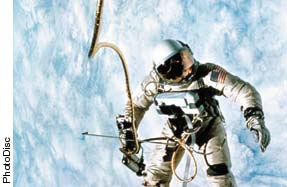
More than an Advisory Board
As the Foundation's activities became ever more robust, Board members wrestled with the ongoing question of how involved they should be in managing the agency's affairs. The Board had fought off the Kennedy Administration's efforts to reduce the Board's influence, but members themselves admitted from time to time that the Board "should stop worrying about details and possibly 'stepping on toes'...," as was recorded in the minutes of one long self-examination session in November 1965. Members at that meeting decried "the custom of determining what matters should be brought before the Board primarily on a dollar basis rather than on a policymaking basis." Instead of micromanaging operational details, the Board should be "more sensitive" to "what science can do for the public."
 On the other hand, members at the meeting strongly reconfirmed that the Board should serve more than a
purely advisory function. The Board, they said, was "an excellent platform from which to act" and had
"stood up to the Government for the scientific community in previous crises." The Director was "in an
anomalous position, being responsible to the President, Congress and the Board," and could best be helped
by the Board's giving him a "basis for objecting to action by other parts of the Government," or even
acting as "a 'burr' to the Government, if necessary."
On the other hand, members at the meeting strongly reconfirmed that the Board should serve more than a
purely advisory function. The Board, they said, was "an excellent platform from which to act" and had
"stood up to the Government for the scientific community in previous crises." The Director was "in an
anomalous position, being responsible to the President, Congress and the Board," and could best be helped
by the Board's giving him a "basis for objecting to action by other parts of the Government," or even
acting as "a 'burr' to the Government, if necessary."
The Board enhanced the Foundation's effectiveness in other ways, members noted. Because "the Board has a rotating membership, the academic community feels close to the Board," and hence to the Foundation itself. What's more, "instead of the staff being limited to discussing ideas and plans among themselves," Foundation staff members benefit by "having to present recommendations to a Board with policymaking power. The very act of having to prepare presentations to the Board is apt to provide an objective viewpoint, which makes the staff carefully consider the wider view."
As it celebrated its 15th anniversary in 1965, the Board believed it was fulfilling the vision of self-governance by a pluralistic, merit-driven enterprise that Vannevar Bush outlined in Science-The Endless Frontier twenty years before.
